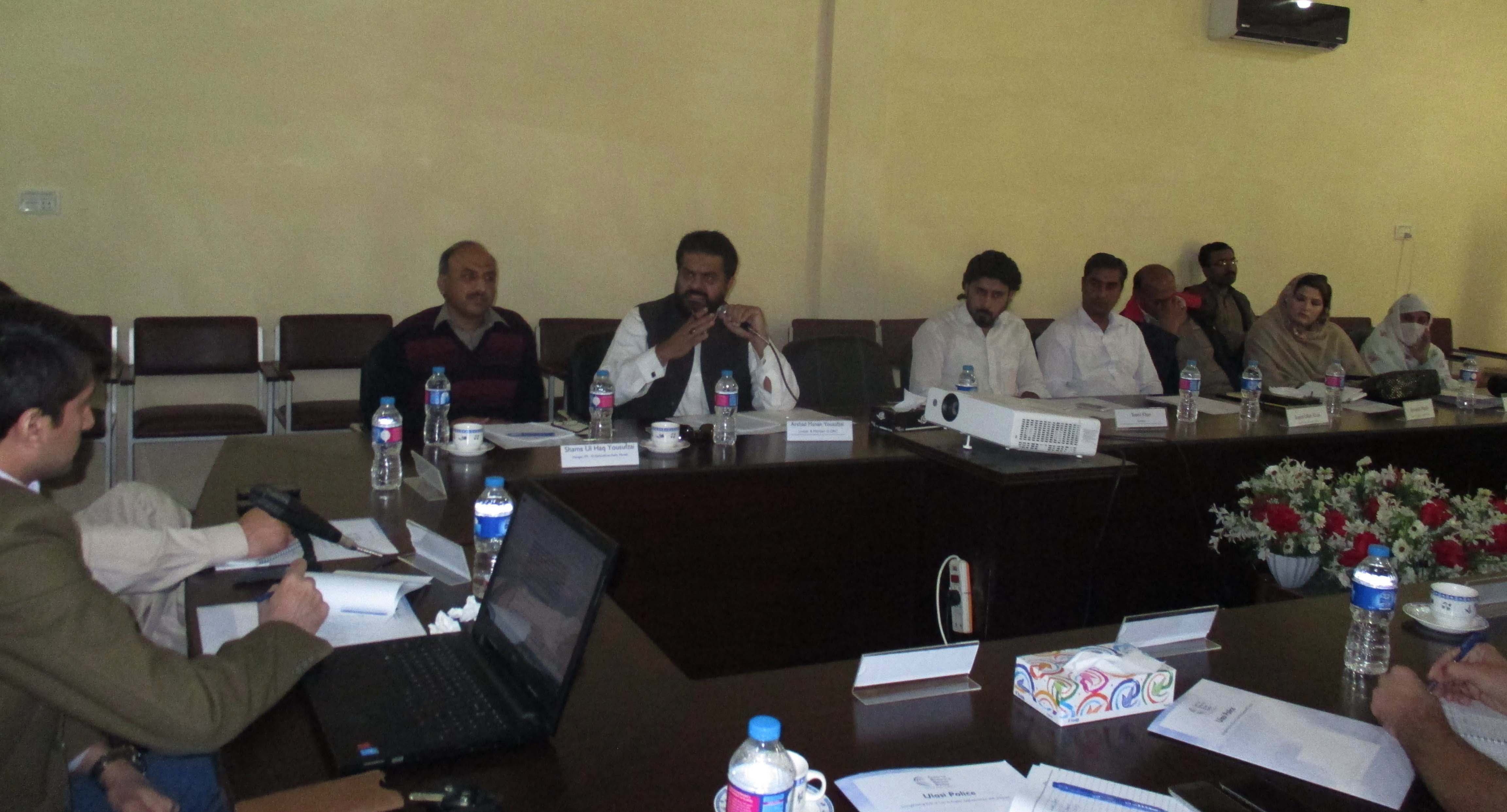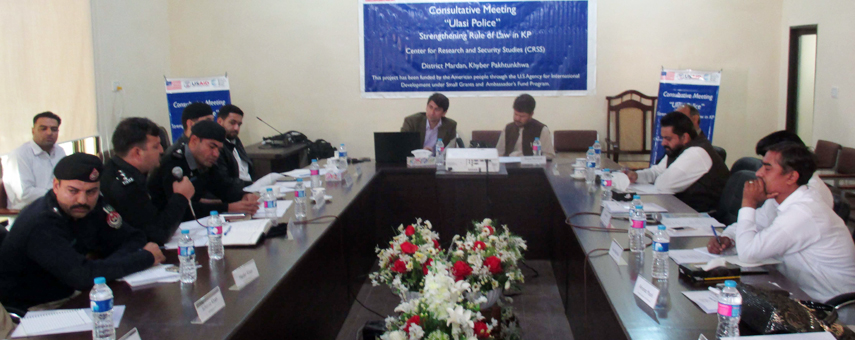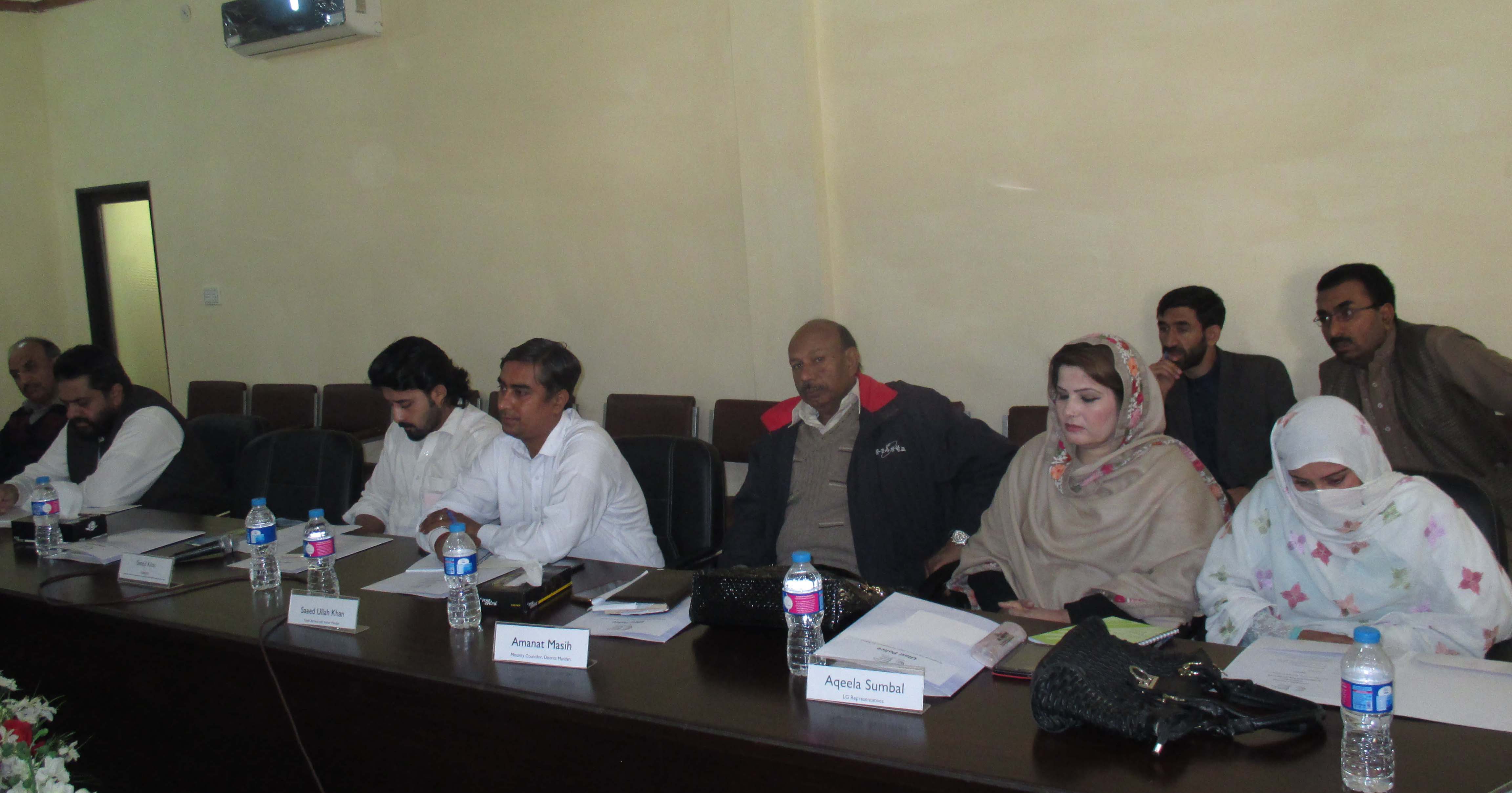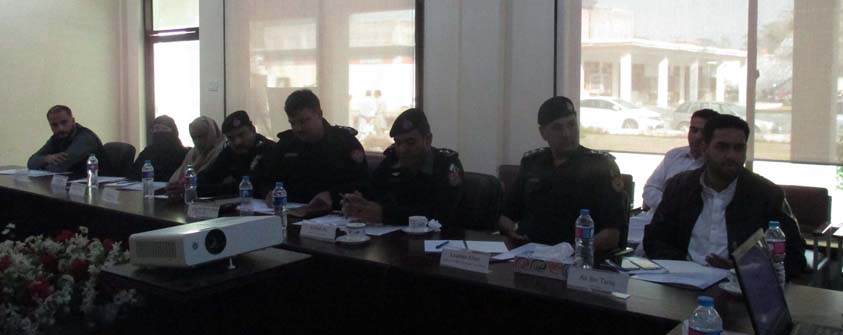The members of working group on police reforms, during a consultative meeting at DPO Office, Mardan unanimously underpinned the need for the capacity building of lower grade police officials who represent around 80% of the total police force. They said that the behavioral and attitudinal changes in police – especially for the officials at lower ranks – were critical to address the public-police trust deficit given their frequent interactions with the public. They concurred with each other that the major factor behind the rude behavior of police constables was their abnormally long duty hours.
The meeting was a part of the project “Ulasi Police”, which is an awareness and advocacy campaign undertaken by the Center for Research and Security Studies (CRSS) – as part of USAID Small Grants and Ambassadors’ Fund Program – to strengthen the rule of law in KP province by promoting and disseminating the significant police reforms aimed at incorporating local communities’ policing needs and international human rights standards. The endeavor aims to tackle the trust deficit between the public and police, help KP police become an accountable and community-focused police force.
The participating members of police said that given the importance of polices’ dealing with public for addressing the trust deficit, several efforts had been undertaken and work was in progress but further behavioral improvements were required. They also noted that the police today in KP had transformed significantly for increased transparency, accountability, public service, better internal communication and check and balance system. They said that the recruitment system of police had been revised to ensure merit and transparency with NTS at the core. While the system of promotion has also undergone revisions; linking with performance and training courses as an important criteria.

“Educational workshops should be conducted at police station level to help an average policeman understand the reforms in true letter and spirit.”
Captain (R) Ali Bin Tariq, ASP Takht Bahi, Mardan said that information sharing was one of the top responsibilities of citizens and an extremely essential pre-requisite to foster public-police partnership. He said that the KP police was ever more accountable with the introduction of Police Access Service (PAS) and other initiatives as part of police reforms.
The participating members of community said that it was enormously important to improve the public relations skills of the police officials, especially at the lower level. The said that an intervention for behavioral and attitudinal changes was vital to address the longstanding public-police trust deficit. Education should be an important consideration in promotion. They also underlined that crime prevention system ought to be developed and preemptive measures should be adopted to control the crimes before they actually take place. They appreciated the transparency of Dispute Resolution Councils and how they were providing speedy justice to the citizens;



